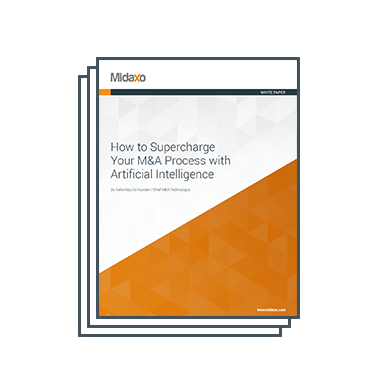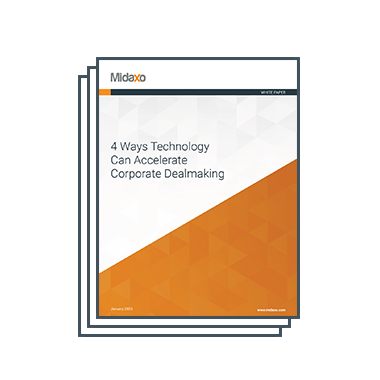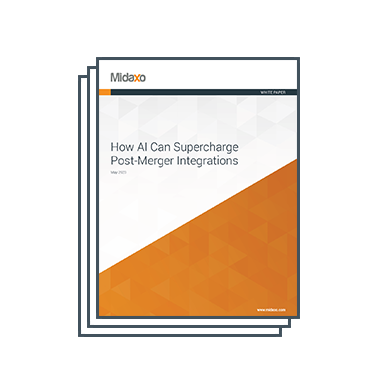Introduction:
In March 2020, as COVID-19 crippled our lives and the economy, M&A deal volume plummeted. Due to the pandemic’s uncharted territory, most deals halted. As a result, the first quarter of 2020 was far worse than the 2008 economic crisis. However, the ability to remain Agile and pivot, hallmarks of the best companies and practitioners, allowed for signs of progress by the third quarter, although deal volume was still down. In turn, as we analyze the deals that did take place in 2020, we can make thoughtful predictions for M&A trends in 2021 – a year we are all ready for.
2020’s M&A Trends:
- An increase in “alternative deals” – Alternative deals, such as minority deals (less than 50% acquired) and the establishment of strategic alliances or corporate venture capital investments, were more popular in 2020. It should be noted this trend began slightly prior to the COVID pandemic, but its impact was especially highlighted as the pandemic played out due to the perceived reduced risk of these types of deals. Historically, alternative deals face a high failure rate when they seek to generate long-term value; to combat this downfall, experienced practitioners and continuous synergy monitoring are essential.
- Virtual dealmaking – Undoubtedly, the shift to WFH (work from home) shook the people centric world of M&A; on-site visits and in-person meetings were stripped from practitioners’ toolboxes. Fortunately, M&A practitioners’ comfort levels with technology in general are high, which allowed for a fairly smooth transition to virtual dealmaking. At this point, the most common obstacles to virtual dealmaking are associated with prolonged due diligence; of course, we will have to wait and see the integration ramifications of virtual dealmaking during COVID-19.
- The impact of software companies’ high stock prices – In general, a major COVID M&A trend is software companies are seeing high stock prices, which makes them prime buyers.
- Increased interest in start-ups – Investors are increasingly interested in start-up companies, especially in the digital products and services arenas.
Noteable Deals of 2020:
- Salesforce’s acquisition of Slack (as well as Vlocity) – Salesforce acquired both Vlocity and Slack this year – though the deal with Slack certainly made for bigger headlines. This $27.7 billion dollar deal positions Salesforce more tightly against rival Microsoft.
- Visa’s acquisition of Plaid Technologies – Visa purchased Plaid for $5.3 billion in an effort to reposition itself as technology changes the world of financial services. Moreover, Visa contends this deal will expand its market. However, not all M&A experts are sold on this deal so the true value is still to be seen.
- Seven & i’s acquisition of Speedway – This was one of the largest deals of the year. Seven & i, a Japanese company and owner of 7/11 Convenience stores, bought Speedway gas stations for $21 billion. CNBC touted this deal as a hopeful sign of global dealmaking amidst the pandemic.
- Mars’ purchase of Kind Bars – Continuing the trend of food and beverage giants shifting to healthier options to increase their market share and longevity, Mars purchased Kind Bars for $5 billion.
- Livongo & Teledoc merger – This 18.5 billion dollar deal certainly was influenced by the pandemic and the increase in service demand. The merger has Livongo becoming a subsidiary of Teledoc and was overwhelmingly approved by both companies’ shareholders.
- Analog Devices acquisition of Maxim – Another one of the largest deals of the year was Analog Devices purchase of rival Maxim for $21 billion. This move is thought to allow Analog Devices to compete with larger companies in its industry, such as Texas Instruments.
- Just Eat Takeaway’s purchase of Grubhub – Just Eat Takeaway, a European food delivery service, purchased Grubhub for $7.3 billion in order to gain a market position in the United States.
- Uber’s acquisition of Postmates – Uber had also been interested in Grubhub, and when that deal did not pan out (due to cost and regulation concerns), it vowed to continue to investigate opportunities in the food delivery business – enter Postmates. Ultimately, Uber acquired Postmates for $2.65 billion. Postmates will now be combined with Uber Eats, giving Uber a larger share of the market. This deal, as well as the Just Eat Takeaway/Grubhub deal, are especially interesting given the increase of food delivery during COVID-19, though the food delivery platform has not yet proven to have solid, lasting earning power.
- Morgan Stanley’s acquisition of E*TRADE – Morgan Stanley completed its acquisition of E*TRADE in the Fall, paying $13 billion for the target. One of the prime reasons for this deal was to allow Morgan Stanley to tap into new revenue streams.
- Johnson & Johnson’s purchase of Momenta Pharmaceuticals – Johnson & Johnson paid a reported $6.5 billion to acquire Momenta Pharmaceuticals; a key asset of the deal was Momenta’s autoimmune disease research and treatments, which will allow Johnson & Johnson to expand its portfolio.
- Intercontinental Exchange’s acquisition of Ellie Mae – Intercontinental Exchange identified Ellie Mae’s industry leadership position and cutting edge technology as means to further enhance the systems automation of mortgage origination, offering benefits to both stakeholders and consumers alike.
Looking Ahead to 2021: M&A Trends & Influences:
We believe the following will be covid-influenced M&A trends that will remain prominent throughout 2021:
- Deals driven by the shift to WFH – The Salesforce/Slack deal was hailed by The New York Times as “a bet on remote working,” which is a “hot spot” for the future of deals. The premise behind this trend is not surprising: the in-office, 9-5, Monday to Friday work model may never return for many, so making WFH easier and more efficient is necessarily a major goal for many companies when it comes to products, services, and M&A activity. As we create our new normal and post-covid M&A begins, WFH scenarios will certainly have a considerable influence.
- A continued increase in alternative deals – Many believe alternative deals will remain popular as we head into 2021 due to their decreased risk and opportunities for beneficial strategic partnerships. In fact, in a recent survey, 45% of M&A executives named alternative M&A as an area of interest for future activity.
- A combination of virtual and in-person dealmaking – In a piece done with Deloitte, The Wall Street Journal noted 87% of M&A professionals said virtual deals have been effective. This high percentage foreshadows more virtual deals will take place. However, many experienced practitioners understand the critical importance of the “human factor” in deals, especially when it comes to culture, change management, and integration; therefore, we predict a hybrid model will often be employed in 2021.
- Companies flush with cash will scoop up distressed assets – While some industries were crushed by COVID (hospitality and aviation, to name a couple), others flourished (health and technology, for example). This reality will better position certain companies for M&A activity in the New Year. In addition, private equities ripe with cash will also look to take advantage of distressed assets and/or companies.
- Valuation difficulties – Accurate valuation is a critical, foundational piece of M&A activity. The ramifications of the pandemic can make the art of valuation more difficult and complex given the uncertainty of the market.
- A decrease in global deals – Many M&A experts believe we will see fewer deals crossing country borders in the New Year. This will most likely be an attempt to reduce risk related to foreign markets as they recover from the economic fallout of COVID.
Concluding Thoughts:
Undoubtedly, COVID has shifted all aspects of our lives – mergers and acquisitions are no exception. Companies have had to pause and rethink their M&A strategy in a COVID world, but deal activity is rebounding and will continue to do so in the New Year, albeit with some changes. With these market disruptions and shifts in mind, now more than ever it is critical to have experienced practitioners on your teams, as well as methodical, transparent, and proven deal practices and systems in place.





